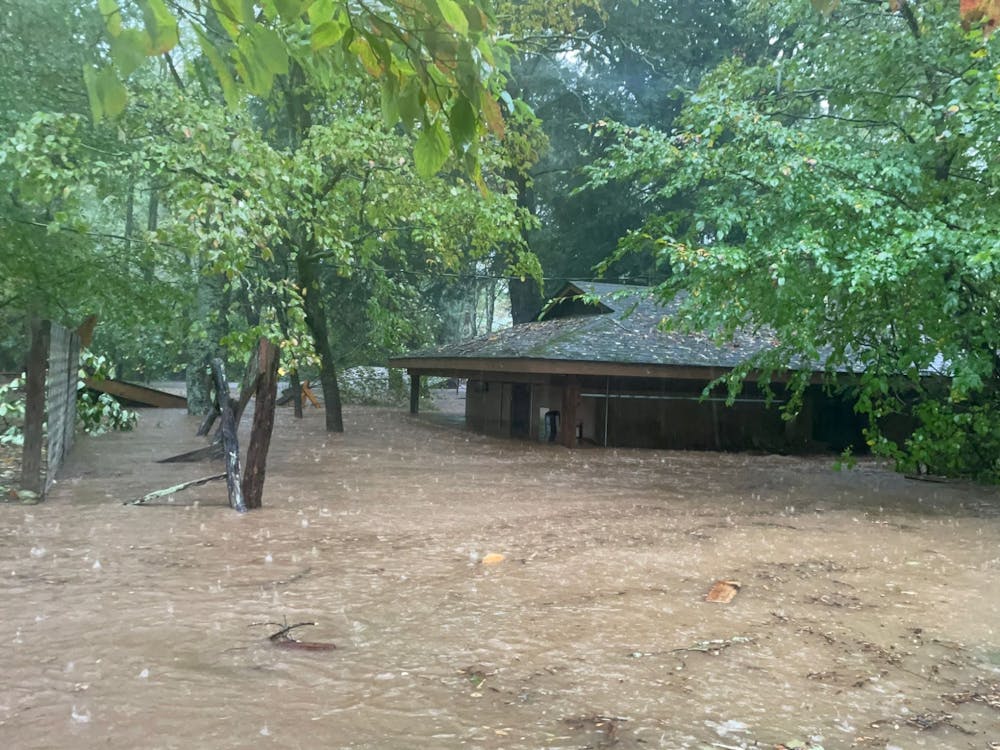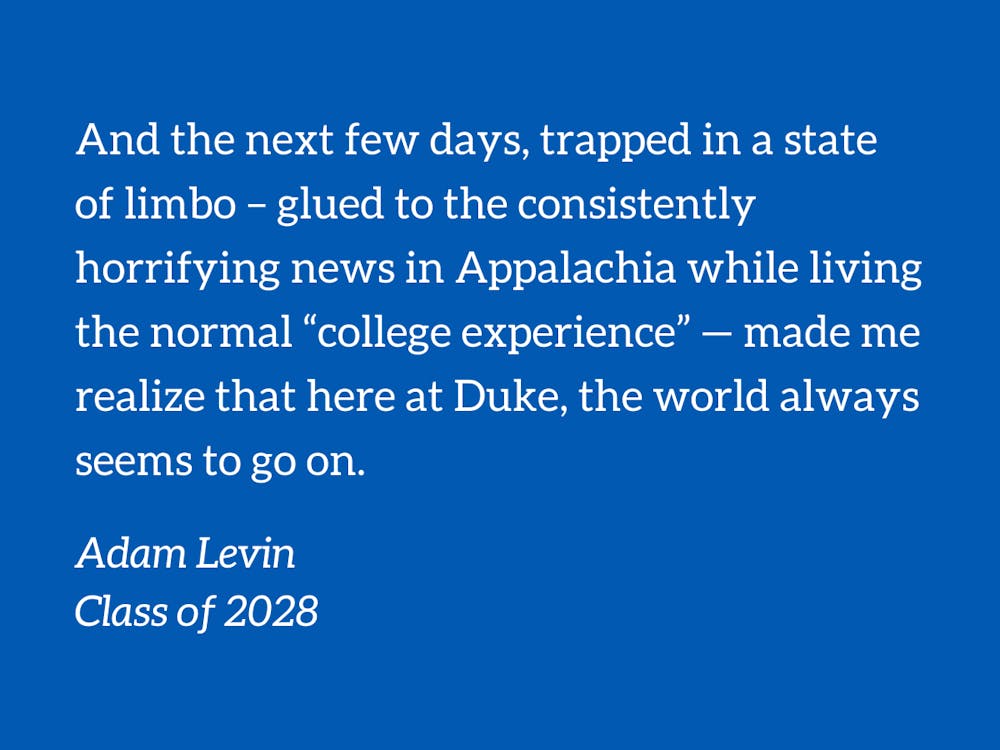Nestled in the heart of the Appalachian Mountains, bordering the Pisgah National Forest, lies a small community named Celo. Defined by its Quaker values, the community collectively shares about 1,100 acres of land among 60 families. It also owns a summer camp I’ve attended for the last 10 years of my life.
After attending the camp for six years as a camper, I came back for four more as a staff member. There, I helped in every conceivable way to give the campers the same experience I remembered from my camper years — I led backpacking trips, cooked home-cooked meals and emceed camper-led performances. The countless hours I’ve put into this camp have shaped me: working with kids and out in nature has a funny way of enabling you to embrace your authentic self.
Years later, one moment from my years as a camper still forms my view of Celo. On a mid-camp morning, a trumpet poked through the flaps of my tent — bright brass melodies escaped from its horn. Every staff member at Camp Celo seemed to gather outside my tent, performing their once-every-three-weeks wakeup: a hopeful, heartwarming song called "Postcards from Italy." I still treasure that feeling, the community and the beauty permeating each moment of the song.
Regardless of my deep connection to Celo and the people I’ve met there, the community feels deeply isolated. Trapped in a valley between towering peaks and 25 minutes from the nearest town, it seems like nothing can touch the peaceful, simple life of Celo. Last weekend, that isolation transformed from a defining feature of the community to another cause of its devastation.
On Saturday, I began to understand the true impacts of such isolation. I hurried to the tailgate, decked out in my personalized Duke jersey and bright blue face paint. Mindlessly, I opened Instagram, swiping from story to story, my feet autonomously moving forward. Yet stumbling upon a story of my close friend’s sister, everything seemed to stop. My feet halted in their path. The pop music blasting through my AirPods paused. My excitement for the game vanished.
Until I opened that story, I didn’t really understand what Hurricane Helene had meant for North Carolina — sure, we can complain about the storm drains on East or the longer bus routes, but our experience with the storm was entirely distinct from the Western half of the state. The Instagram story explained that my friend’s sister had not been able to contact her family for days, that severe flooding had occurred in her hometown, and that she was not sure who was alright or what was going on.
Reckoning with a crushing fear about the safety of a friend while tailgating for a football game isn’t the easiest thing in the world. Luckily, soon after, she texted that she was okay — that she finally had access to WiFi but that every other service was still gone. I still remember her words: Celo is destroyed.

And the next few days, trapped in a state of limbo — glued to the consistently horrifying news in Appalachia while living the normal "college experience" — made me realize that here at Duke, the world always seems to go on. The grind never stops. While the worst storm since Katrina inundated an area so far inland it was formerly seen as a "climate refuge," Ed Sheeran and UNC both visited to help us celebrate our centennial. As Governor Cooper declared a state of emergency because of Hurricane Helene, the university declared that the concert would go on ‘rain or shine’.
And even though images of the disaster are plastered on the front pages of the New York Times, it’s still hard for us at Duke to understand the extent of the catastrophe that occurred in Western North Carolina this past week. Eily Rule, a member of the Celo community who’s been assisting with the relief effort, explained to me that "the media and the rest of the US is still not grasping the severity of our situation here." When a firefighter was asked about a GoFundMe for Pensacola, an area near Celo, Rule recalled that, "a GoFundMe link has not even been thought of yet, their focus is consumed by trying to get people out alive."
Yet even amid devastation, the community and the resilience of the same community that once played "Postcards to Italy" outside my tent flaps has not disappeared. The Celo community has banded together to bring each other food, water, gas and medical supplies. One local posted, "It’s a weird combination to be utterly devastated and deep in our soul grateful. The outpour of love and support from so many from Charlotte, to Asheville, is overwhelming."
As members of the broader North Carolina community, it is our responsibility to offer the same support. If it is within your means, I implore everyone reading this article to send even a little financial support to communities in Western North Carolina.
Because my greatest fear is that, in a few weeks, everything will go back to normal. The little concern that existed at Duke and outside of Western North Carolina will disappear. As the executive director of Spruce Pine, a town a few miles down the mountain from Celo, explained when Helene hit, "Appalachia is so frequently forgotten ... We just don't have the bodies or the resources to prepare for something like this." Don’t forget, and don’t let your concern be washed away by the daily rhythm of Duke life.
Below are various resources to send contributions — in Celo and across Western North Carolina.
- Camp Celo GoFundMe
- Other resources (all via Common Cause NC)
- BeLoved Asheville: "A mutual aid collective purchasing and distributing life-saving supplies."
- Community Foundation of Western North Carolina: "Has 46 years of experience serving the 18 counties of WNC, including the Qualla Boundary.”
- Day One Relief: "A collaborative organization with a long history of organizing disaster relief efforts in North Carolina, and currently airdropping supplies into remote mountainous areas."
- Hunger and Health Coalition: "Coordinating supply distribution throughout Northwestern North Carolina."
- More organizations can be found on the Blue Ridge Public Radio website.
Adam Levin is a Trinity first-year.
Get The Chronicle straight to your inbox
Sign up for our weekly newsletter. Cancel at any time.

